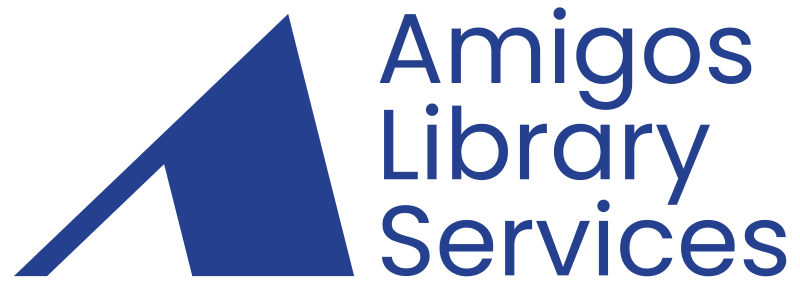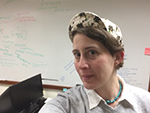
Speaker: Jaime Taylor - UMass Amherst Libraries - jaimetaylor@umass.edu
Session Time: 10 am - 10:45 am CST
Session Title: Labor in Open Source System Implementations
Session Description: An institution’s capacity for the labor required to implement new systems is an under-evaluated metric in deciding which to adopt. In particular, many of the most interesting and useful new library systems are now open source ones, which require a higher institutional commitment to ongoing staffing and labor than traditional proprietary vendor systems. Do organizations evaluate their labor needs accurately when implementing open source systems? What are those labor needs, compared to proprietary library systems? What changes must a legacy organizational structure undergo to successfully implement and support open source systems?
The presenter is fresh off a several-years-long FOLIO implementation at a large university library that went live on FOLIO as part of a consortium. She will reflect on these questions in light of that experience. FOLIO is an open source next gen ILS/LSP that is still under active development and has a global user and developer community.
Speaker Bio: Jaime Taylor is the Discovery & Resource Management Systems Coordinator at the University of Massachusetts Amherst. She holds a BA from Smith College and an MLS from Simmons University. She lives in Northampton, MA. Her professional interests include the racialized and gendered nature of librarianship, rethinking librarian education, flattening institutional structures beyond what is currently fashionable, and providing library services in unconventional settings. Her non-professional interests include bicycles, cats, and old houses.
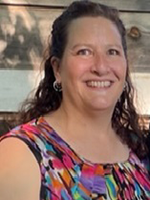
Speaker: Mary Carrier - Mohawk Valley Library System - mcarrier@mvls.info
Session Time: 10 am - 10:45 am CST
Session Title: How to Plan for, Prepare, Use, and Maintain Technology for Youth Services Programming
Session Description: Mary Carrier, Technology & Growth Specialist for the Mohawk Valley Library System in Schenectady, New York will share her expertise in technology programming for children and teens. She will provide testimony of her experience with redos and don't dos in youth services programming – sharing success stories and offering practical knowledge.
Mary has created classes utilizing Finch robots, Mbots, Dash & Dot, and various classes with Scratch and ScratchJr programming. Learn how important planning, preparing, and technology software and hardware testing is for program success.
Speaker Bio: Mary Carrier, Technology & Growth Specialist for the Mohawk Valley Library System in Schenectady, New York will share her expertise in technology programming for children and teens. Mary has dedicated over 15 years to teaching digital literacy and technology trends in her community. In 2015, she began offering coding and STEAM classes to children and teens at the library and in the community as outreach programs. Mary has worked with many collaborative partners over the years and loves to inspire and share success stories with others.
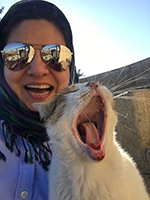
Speaker: Saima Kadir - Texas State Library & Archives Commission - skadir1@hotmail.com
Session Time: 11 am - 11:45 am CST
Session Title: Technology Acquisition: The Good, The Bad and the Savvy!
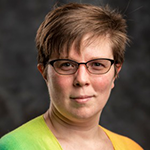
Speaker: Kayla Reed - Grinnell College - reedkayla@grinnell.edu
Speaker: Erika Barber - Grinnell College - barberer@grinnell.edu
Session Time: 11 am - 11:45 am CST
Session Title: Introducing New Technology: Lessons Learned and Shared
Session Description: New technology can be exciting and make lives and tasks easier! But first impressions are lasting, and introducing new technology at the wrong time can leave a long lasting mark. At Grinnell College, Kayla Reed and Erika Barber talk about their experiences in not only knowing when to introduce new technology, but understanding the workplace and employees to create the best experience possible for the library. Three different phases of technology implementation and planning are discussed and real life examples given from each stage.
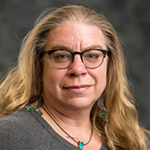 Speaker Bio: Kayla Reed attended Missouri Southern State University where she earned her BA in Theatre, English Literature and English Creative Writing in 2012. While attaining her degrees, Kayla worked at the library as a student worker and decided to pursue library science. While developing as a Cataloger, Kayla obtained her MLIS from Kent State University in 2017. In 2017, Kayla became the Access Services Librarian at Missouri Southern State University, then in 2020 took on the Systems Librarian position. In 2020 she earned her Masters in Science of Management from Missouri Southern State University. Kayla came to Grinnell in 2021.
Speaker Bio: Kayla Reed attended Missouri Southern State University where she earned her BA in Theatre, English Literature and English Creative Writing in 2012. While attaining her degrees, Kayla worked at the library as a student worker and decided to pursue library science. While developing as a Cataloger, Kayla obtained her MLIS from Kent State University in 2017. In 2017, Kayla became the Access Services Librarian at Missouri Southern State University, then in 2020 took on the Systems Librarian position. In 2020 she earned her Masters in Science of Management from Missouri Southern State University. Kayla came to Grinnell in 2021.
Speaker Bio: Erika Gottshall Barber, Library Systems Associate at Grinnell College, earned her MLIS from the University of Iowa.
 Follow @blendedlib
Follow @blendedlib
Speaker: Steven Bell - Temple University - bells@temple.edu
Session Time: 11 am - 11:45 am CST
Session Title: Time to Say Farewell: Do Academic Libraries Still Need Desktop Computers?
Session Description: In 2019 the Charles Library opened at Temple University. The building's design is intentional about eliminating approximately 80% of the desktop computers and electrical outlets found in most libraries. Based on data about student computing trends at the institution, a decision was made to avoid the significant infrastructure costs of wiring and electrical power for desktop computer labs. Instead, the library led the institution in developing a multi-academic building laptop share system. Students who need computing while on campus can borrow them from kiosks located in most academic buildings and return them to any other campus kiosk. A similar kiosk borrowing and sharing system was developed for power bricks used to charge a variety of devices. In the session, the presenter will explain the rationale for these decisions, make the case for why other academic libraries should consider eliminating desktop computing and discuss the different technology and hardware options available to replace desktop computers and alternatives to traditional library device powering infrastructure.
Speaker Bio: Steven J. Bell, Ed.D., is the associate university librarian for research and instructional services at Temple University. He writes and speaks about academic librarianship and higher education, change readiness, educational technology, open education, design thinking and user experience. He co-authored "Academic Librarianship by Design" in 2007, the first book to introduce design thinking to library practitioners. He currently teaches design thinking and open education courses to MLIS students at the San Jose State University iSchool. Steven has keynoted over 50 professional physical and virtual conferences. In addition to numerous published articles, he is author/editor of the book "Learning from Crucible Moments: Lessons in Crisis Leadership." He authored two columns for Library Journal: From the Bell Tower and Leading From the Library from 2009 to 2019, and currently contributes a monthly blog post to the Charleston Hub. For additional information about Steven or links to his projects, visit http://stevenbell.info .
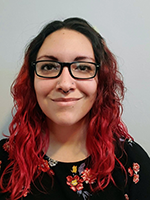 Follow @fourellaments
Follow @fourellaments
Speaker: Ella Alonso - Prince George's County Memorial Library System - ella.alonso@pgcmls.info
Session Time: 1 pm - 1:45 pm CST
Session Title: From Technology Enthusiast to Expert
Session Description: The presentation will be divided into three distinct sections. The first section will lay the groundwork by reviewing some of the most common emerging technologies that public libraries have been exploring over the last five years. The second section will review how staff members at any authority or competency level can find resources to assist them in exploring and becoming confident with using technology. The third section will be a step-by-step review of how staff members can develop individualized learning plans for adopting and managing new technologies in their libraries.
Speaker Bio: Ella Alonso (she/her) is a Library Associate II at the Laurel Library, a branch of the Prince George's County Memorial Library System. She has been in public libraries for the last six years. Her professional interests include exploring emerging technologies, increasing digital literacy, and creating inclusive spaces. She believes that everyone can be successful with the right instructional model and strives to present information that is accessible to all audiences. When in the branch, Ella spends most of her time working with community partners or setting up dinosaur-themed dioramas as a fun form of marketing for library services.
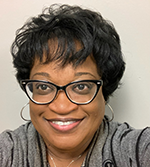 Follow @sandyifie
Follow @sandyifieSpeaker: Cassandra Ifie - Mississippi Valley State University - cassandraifie@gmail.com
Session Time: 1 pm - 1:45 pm CST
Session Title: Collaborative Approaches for Engaging Students with Technology Resources and Programming on a Budget
Session Description: This presentation will highlight cost-effective collaborative approaches used to engage students with technology resources and programming. The session will offer details on how the learning resource center area of a small college was re-imagined and revamped to address student needs. Podcast resources, streaming services, and hands-on technology workshops served as primary upgrade recommendations. Collaborative strategies, technology resources, and programming outcomes will be discussed.
Speaker Bio: A native of Memphis, Tennessee, Cassandra Ifie works at Mississippi Valley State University where she serves as Instructional Services Librarian. She has nearly twenty years of experience working in academic, public, and school libraries. A self-proclaimed "thrifting connoisseur," Cassandra is passionate about transforming library spaces on a budget. She has a Master's degree in Library Science from Texas Woman's University.
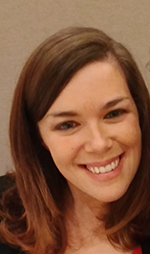
Speaker: Melissa Merlos - Harper College Library - mmerlos@harpercollege.edu
Speaker: Christine Kuffel - Harper College Library - ckuffel@harpercollege.edu
Speaker: Ailyn Trujillo - Harper College Library - ta2222842@harpercollege.edu
Session Time: 1 pm - 1:45 pm CST
Session Title: If You Give Someone a Chromebook, You're Going to Need a Plan
Session Description: What do do you when your library goes from circulating 50 to over 1,000 Chromebooks in the middle of a pandemic?
A) Run away screaming
B) Quit your job
C) Adapt, innovate, collaborate
Discover how Harper College Library turned a challenge into an opportunity to make technology like Chromebooks, hotspots, and calculators available and accessible to students on their campuses. Attendees will learn about the library's experience of adapting to these changes and how they have addressed barriers along the way.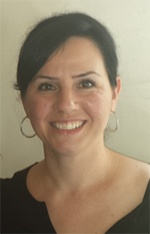
Speaker Bio: Melissa Merlos is the Coordinator of Electronic Resources and Technology at Harper College Library. She has 15 years of library experience in both public and academic settings. Melissa oversaw the Semester Loan Technology Program from it's inception and worked to adapt the program as it grew. She is passionate about helping students by teaching research skills and connecting them with materials and resources to allow them to thrive in their education.
Speaker Bio: Christine Kuffel is the Coordinator of User Services at Harper College Library. She oversees the Circulation and Interlibrary Loan departments as well as the common read program, One Book One Harper. Christine has extensive experience in customer service, management, and library programming.
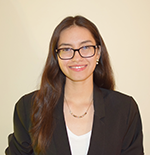 Speaker Bio: Ailyn Trujillo currently works as the Circulation Supervisor at the Harper College Library. Prior to this role, she had four years of experience working in different roles in public and academic library settings. Ailyn is service-oriented and is enthusiastic of finding new and meaningful ways to connect students, staff, and the community with the Harper Library.
Speaker Bio: Ailyn Trujillo currently works as the Circulation Supervisor at the Harper College Library. Prior to this role, she had four years of experience working in different roles in public and academic library settings. Ailyn is service-oriented and is enthusiastic of finding new and meaningful ways to connect students, staff, and the community with the Harper Library.

Speaker: David Daghita - McKinney Public Library System - ddaghita@mckinneytexas.org
Session Time: 2 pm - 2:45 pm CST
Session Title: McKinney Mobility: A pure roaming model for circulation
Session Description: Libraries will be able to function with minimal desk barriers. Patron interaction can be as seamless as walking up to a staff member with a tablet and starting a conversation without impeding furniture. The patron's interaction does not stop at the spot where the question was asked it can be carried into any part of your library with all their staff side ILS account information accessible.
Speaker Bio: David is the Systems Librarian Supervisor for McKinney Public Library System. He has Administrator knowledge with Koha, Polaris, and Sirsi-Dynix Integrated Library Systems. He is an avid cyclist.

Speaker: Clarke Iakovakis - Oklahoma State University - clarke.iakovakis@okstate.edu
Speaker: Megan Macken - Oklahoma State University - megan.macken@okstate.edu
Speaker: Matt Upson - Oklahoma State University - matthew.upson@okstate.edu
Session Time: 2 pm - 2:45 pm CST
Session Title: Library Leadership of Research Information Management Systems: From Selection to Configuration, Implementation & System Administration
Session Description: By administering the new university-wide Research Information Management (RIM) system, a software platform providing a single source of data on faculty biographical information, scholarship, teaching, grants, and service activities, the Oklahoma State University (OSU) Libraries have positioned themselves as a campus leader. Through the process of recommending, selecting, promoting, implementing, and supporting the RIM system, the library has developed new partnerships, established itself as a campus expert on scholarly communication, and shifted from a service provider to a valued collaborator.
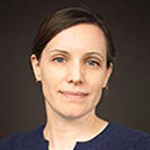 Administering RIM systems requires a diverse and unique set of technical and professional competencies, many of which librarians have already developed, including a broad experience ethically managing research information, working with vendors, and building and cultivating relationships. While traditional academic librarian skills—such as training faculty, collecting citations, and working with metadata—have been utilized, more peripheral skills—such as mining and modeling data, working with APIs, and database development—have also been brought together to help faculty manage and promote their research output. Furthermore, managing the system has opened up excellent opportunities to lead discussions pertaining to privacy, responsible interpretation and use of bibliometric indicators, open access, and other campus priorities, such as community engagement and the UN Sustainable Development Goals. Because of its expertise in research information, the library has become instrumental, not as a service provider, but as a partner, in many University processes for the first time.
Administering RIM systems requires a diverse and unique set of technical and professional competencies, many of which librarians have already developed, including a broad experience ethically managing research information, working with vendors, and building and cultivating relationships. While traditional academic librarian skills—such as training faculty, collecting citations, and working with metadata—have been utilized, more peripheral skills—such as mining and modeling data, working with APIs, and database development—have also been brought together to help faculty manage and promote their research output. Furthermore, managing the system has opened up excellent opportunities to lead discussions pertaining to privacy, responsible interpretation and use of bibliometric indicators, open access, and other campus priorities, such as community engagement and the UN Sustainable Development Goals. Because of its expertise in research information, the library has become instrumental, not as a service provider, but as a partner, in many University processes for the first time.
This presentation will describe OSU Library's experience implementing a RIM system, with a specific focus on adapting existing library roles and cultivating technical skills to position librarians as research information management experts on campus.
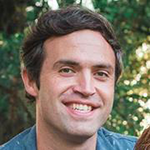 Speaker Bio: Clarke Lakovakis is the Scholarly Services Librarian at Oklahoma State University. He is also liaison to the History, Political Science, American Indian Studies, Africana Studies, Philosophy, and Religious Studies programs. He has an MS in Information Studies from the University of Texas, and a BS in History from Texas State University. Clarke has worked in libraries for over 13 years in a variety of capacities. He is interested in scholarly publishing, open access, copyright, programming pedagogy, and bibliometric analysis. He is also a Certified Carpentries Instructor and routinely provides workshops on a number of technical tools, including the Open Science Framework, LaTeX, Git & GitHub, OpenRefine, using R to retrieve and reshape data from APIs, and others.
Speaker Bio: Clarke Lakovakis is the Scholarly Services Librarian at Oklahoma State University. He is also liaison to the History, Political Science, American Indian Studies, Africana Studies, Philosophy, and Religious Studies programs. He has an MS in Information Studies from the University of Texas, and a BS in History from Texas State University. Clarke has worked in libraries for over 13 years in a variety of capacities. He is interested in scholarly publishing, open access, copyright, programming pedagogy, and bibliometric analysis. He is also a Certified Carpentries Instructor and routinely provides workshops on a number of technical tools, including the Open Science Framework, LaTeX, Git & GitHub, OpenRefine, using R to retrieve and reshape data from APIs, and others.
Speaker Bio: Megan Macken is the Assistant Department Head of Digital Resources and Discovery Services at Oklahoma State's Edmon Low Library where she oversees the metadata and cataloging units. Additionally, she serves as the liaison to Art, Art History and Graphic Design and is a member of the implementation team for Experts Directory, Oklahoma State's research information management (RIM) system. Previously she worked as a digital scholarship librarian and digital archivist. She has master’s degrees in Library Science and the History of Art from Indiana University. Macken is co-editor of the Art Libraries Society of North America's book review publication, ARLIS/NA Reviews.
Speaker Bio: Matt Upson is the Associate Dean for Research & Learning Services and Claud D. Kniffin Professor of Library Service and Education at the OSU Library, where he has been a faculty member since 2014. He received a Bachelor of Science in secondary education from OSU and a Master of Library Science from Emporia State University. His research interests include information literacy, misinformation, critical algorithm studies, open educational resources, open access, games and learning, and graphic novels. He recently co-authored the 2nd edition of "Information Now: A Graphic Guide to Student Research and Web Literacy" and currently serves as a steering committee co-chair for the New Literacies Alliance.
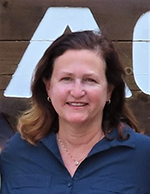
Speaker: Nancy Birmingham - Johnson County Library - birminghamn@jocolibrary.org
Speaker: Hope Harms - Johnson County Library - harmsh@jocolibrary.org
Speaker: Amy Field - Johnson County Library - fielda@jocolibrary.org
Session Time: 2 - 2:45 pm CST
Session Title: Preparation Is Paramount: Lessons Learned from a Successful eLibrary Platform Migration
Session Description: After nearly a decade of using the same eBook and eAudiobook platform, Johnson County Library conducted an in-depth evaluation of major platforms to assess how well each aligned with current stakeholder priorities. Thorough research garnered high confidence in findings that indicated a different platform would better serve, and informed by the evaluation, a cross-functional team collaborated to facilitate all interdependent components of migration. This session will outline the intentional preparation that led to a successful migration and share lessons learned along the way.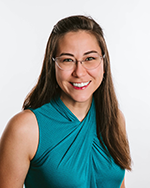
Speaker Bio: Nancy Birmingham, Assistant Branch Manager, Johnson County Library, has worked in legal, corporate, and public libraries for over 25 years and she was Project Lead for the migration portion of the project.
Speaker Bio: Hope Harms, eResources Librarian for Johnson County Library, has worked in public library frontline and support services for over 10 years, and she was the Subject Expert for the evaluation and migration parts of this project.
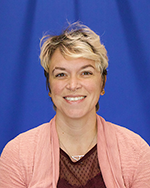 Speaker Bio: Web Content Developer at Jonson County Library, Amy "Jo" Field has been working in libraries since 2007 and earned their Master of Arts in Library Science in 2012. They have worked in public-facing positions such as clerking and youth services, as well as web content, social media, and marketing for libraries. Their background as a teacher and writer meshes well with their work in libraries and particularly in marketing, where sharing information in clear and engaging ways is a priority.
Speaker Bio: Web Content Developer at Jonson County Library, Amy "Jo" Field has been working in libraries since 2007 and earned their Master of Arts in Library Science in 2012. They have worked in public-facing positions such as clerking and youth services, as well as web content, social media, and marketing for libraries. Their background as a teacher and writer meshes well with their work in libraries and particularly in marketing, where sharing information in clear and engaging ways is a priority.
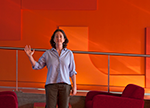
Speaker: Jessamyn West - jessamyn@gmail.com
Session Time: 3 pm - 4:00 pm CST
Session Title: Closing Keynote - Social Justice, Technology and Libraries, Now More Than Ever
Session Description: Libraries have always had a role to play in a democratic society. However, it's less clear what their role is, or should be, in working toward social justice. While some social justice topics are more visible, digital readiness is particularly difficult because of its hidden nature. Library technologist Jessamyn West has been working with digitally divided patrons for over fifteen years. She will share practical advice for things library workers can do to work towards digital equity.
Speaker Bio: Jessamyn West is a consultant, researcher, and international public speaker on library science and digital divide issues. She is the author of the 2011 book "Without a Net: Librarians Bridging the Digital Divide" which explores the challenges of a society becoming stratified by computer skills as well as race and income inequality. Jessamyn speaks to local, regional, and national libraries and library associations and is a regular Computers in Libraries columnist writing on these and other issues relating to the status and roles of libraries in the modern changing world. She has put her skills to good use for fifteen years teaching basic technology classes at Randolph Technical Career Center's adult education program. In addition to being a community technologist and writer, she has taught Community Engagement at the University of Hawai'i at Manoa's Library & Information Science Program and is the technology coordinator for the Vermont Library Association (VLA). She created the "Passport to Vermont Libraries" program and was the recipient of VLA's Library Advocate of the Year Award in 2016, and was recently a Fellow at Harvard's Library Innovation Lab. She holds a BA from Hampshire College and an MLib. from the University of Washington.
